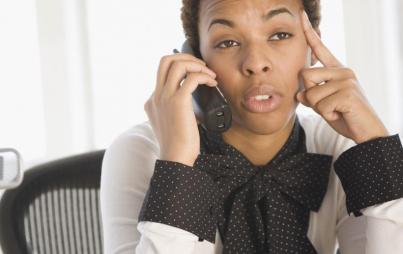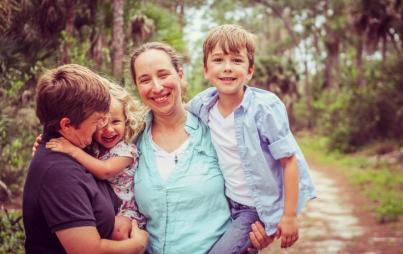
Credit: ThinkStock
This time of year casts a shadow of glib apathy over me. Whereas coworkers wax and wane aloud of their worries for dinner reservations, candlelit affirmations of their romantic exclusivity—we’ve been together three years, do you think it’s time to start buying the fancy chocolate?—I am a corale of cautious gratitude.
For once a year I’m glad I’m not you, or rather, unenvious of the benefited strata of society you and your special someone occupy. Yours, the gender-monogrammed, monogamous relationship, discreet in your anxiety of being dispensable in a time of Tinder and high divorce rates—it finally gets its comeuppance.
Most might look into a crowded restaurant and see celebratory loving couples. I see dozens of tired actors, forced to re-audition for the parts they’ve already landed, and in some cases have held for years.
Sexual and romantic exclusivity is my idea of hell, and for a lot of you celebrating Valentine’s Day, I would reckon it’s the same. Bachelor parties. Mancaves. Girls Night Out. Your monogamy has an entire culture of triage built around it, desperately trying to hold heteronormativity in place as it hemorrhages, free-falling into chaos. The future is upon us. The future is beautiful. The future wore three matching wedding dresses and is having a baby.
Search your feelings, you know a teddy bear and cheap all-night-sex-shop lingerie is not worth another year spent braced against the inevitable.
Come out into the cold, my dove.
I know you’ve heard things.
But jealousy is not the hardest part of polyamory. When you learn to name and own your feelings, and have space to process them without judgment or reprimand, then to fall apart under their weight like some Jenga of neediness is not the end of the world, but rather the potential start of a healing conversation.
Okay, you’re upset because I went on a date with someone new and couldn’t skype you. The pieces are all over the floor, now. Let’s build it back up—together—and talk about how to do better.
What’s hard about polyamory? Having to explain to three women that my suicide attempt does not mean I love them any less than I say I do. Reconciling a compelling lust for my partners with the cruel understanding that society at large views them as repulsive because they’re fat, trans, or a woman of color—and hoping that the other people they sleep with do not bring that ugliness of “the outside world” into their relationship with thoughtless words, or by hesitating to hold hands or kiss in public.
Just as the “gay rights” movement gained traction by asserting itself as a monogamous, marriage-minded, raising-kids-and-buying-stuff sort of crowd, polyamory is receptive of the public eye because congenial, straight-seeming white people are adopting it as some sort of hobby or affect.
But rest assured, precious cadet: I doubt you will ever encounter these people. Every polyamorous person—all of my partners, my exes, my friends—they all bear the visible symptoms of a dancing star in struggle.
We are poor. Fat. Trans. Queer. We shuffle to feel comfortable when people talk about their families. Romantic subplots in movies make no sense to us, either. We may not all check off the same boxes, but we share a mutual seedling; we we can never be anybody’s “everything” because we have been made to feel incomplete in patriarchy.
Polyamory has had a substantial track record at excluding people of color—what I want to give my “little mayor” for Valentine’s Day is emphatic assertion I respect and view her identity as a Palestinian woman as indelible and worth my unconditional support, not just some exotic flavor to “round out my collection.”
You can’t really buy that in stores, yet. At least not with that attitude.
These happy, carefree people that make up the face of polyamory live on some enchanted island and once you come out into the cold to join me, we will find the bridge to their world and take it apart.
They, like the effervescently airbrushed models that plaster our buildings and internet sidebars, like the gay celebrity for whom coming out rid them of all nervosa and fear of the world—do not exist as we imagine them.
You need not burrow, to hide the ways you feel you are ugly from the world, for fear of being found wanton. Revel in your ugliness, be joyous in your “inadequacies.”
You could have a network, a community, of care and affection, one that isn’t funneled through a singular source. It is not your lover’s fault they cannot fit all of your needs, and it is not your fault to have needs that your lover cannot fill. It does not make you “high maintenance” or “undesirable,” though no one would or should ever blame you for believing that.
We have tolerated relationships that held us down, that held us back, that conditioned us to feel grateful to have essential elements of our existence overlooked and tolerated—because we feared that fade into societal irrelevance, or even derision. Because we were afraid of being replaced.
And because that fear of being replaced has us buy shit we can’t afford, go to jobs we hate, and have children we’re not prepared to raise. Whole industries are built around your fear of not fitting into your box—I wouldn’t check the side of the box to see what words they put there to describe what they think of you. You wouldn’t like it.
I’m not saying this is a game I’m going to win, or that you’ll win by coming to our side—life and holding onto love as a woman, especially a trans woman, is hard. And smugness, for all the ease with which it helps you cope with people you hate, can not be traded for sustenance or a place to sleep.
But win or lose, I know that I had the best team I could ask for; my honey who wrote a song about me for Christmas; my girlfriend who shortcuts my fashion anxiety by dumping bags of second-hand clothes on me; my liebling who makes glitch art from my pictures; my princess who’ll rent a car to get me from the airport in the middle of the night. They play their positions with grace and patience, inspiring me to commit the same.
Polyamory is not necessarily a better choice, but it has made me a better person. And holds me to it.
If you feel ugly, if you feel trapped, if you are on the cusp of infinite unease in your relationship—
consider coming out into the cold.






